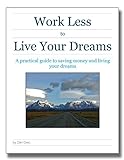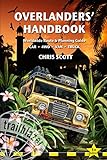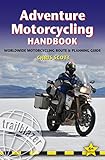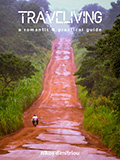Overland Tanzania Travel
| WikiOverland is growing! We have limited information about Tanzania right now. |
Currency to display:
Contents
- 1 Entering Tanzania with a Car or Motorbike
- 2 Driving in Tanzania
- 3 Gas price in Tanzania and Diesel price in Tanzania
- 4 Safety and Security Considerations
- 5 Camping in Tanzania
- 6 Navigation
- 7 Special Overland Travel interests
- 8 Vehicle Maintenance
- 9 Buy or sell a car or motorbike in Tanzania
- 10 References
- 11 Helpful External links
Entering Tanzania with a Car or Motorbike
Correct as of: November 2013
Required Paperwork
- Carnet de Passage
- Original Vehicle registration
- Proof of insurance - can be bought at the border in 1- and 3-month intervals
Process at border
(To check if you need a travel Visa for Tanzania, application instructions and fees see: Tanzania Visa online application at VisaHQ.com)
Briefly describe the process at the border to enter with a vehicle
At immigration, just after they check your passport, they'll ask to see the original registration, and they'll want to keep it to ensure you return via the same entry point and aren't importing your vehicle. If you return via the same entry point, they seem to be pretty good about returning it without hassle. Carry multiple certified copies if you plan to exit by another border crossing.
Cost of entry
$5.00 USD plus another Error in price tag: The currency attribute must be specified. per month you want to stay, as a road tax.
Permitted length of stay
State the permitted length of entry for the vehicle
Extension of stay
Describe the process to extend the permitted length of entry for the vehicle, if possible.
Storing a vehicle and temporarily leaving the country
Describe if/how a vehicle can be stored, and for how long.
Also mention if the owner / temporary importer can leave the country while the vehicle is in storage.
Exiting with a vehicle
Describe the paperwork requirements and process at the border to exit.
Driving in Tanzania
Insurance requirements
COMESA or “Yellow card” insurance is required.
Cost of insurance
See the prices listed on the COMESA Insurance page.
Where to purchase insurance
Describe where insurance can be purchased.
Driving license
State the kind of driving licenses required. i.e. International Driving Permit. International Driving Permit is accepted across Tanzania.
Driving side of road
Left.
Unknown if LHD vehicles can be driven in Tanzania.
Mandatory items in vehicle
State any mandatory items that must be carried in the vehicle. (i.e. safety triangle, first aid kit, fire extinguisher, etc.)
- Original vehicle registration or certified copy
- 1kg CO2 fire extinguisher (not the spray canister type)
- 2 safety triangles
- front passengers wearing seat belts
Roads
General Road quality
Give a brief description of the general road quality. Mention if one way streets are common.
- Main roads are decent tarmac; as of October 2013, there are beautiful new tarmac stretches between Mikumi and just south of Iringa, between Bagamoyo and Msata on the Chilenze-Segera road, and most of the Chilenze-Segera road itself
- Main highways are 2 lanes only, with some 'suicide lanes' for overtaking on long steep hills, but not always
- expect many logging trucks (lorries) on the Iringa-Mbeya section
- secondary roads vary from well-graded dirt/laterite in dry seasons to horrifically-potholed swamplands in the rainy season
- 4WD is helpful on secondary roads, but buses and minivans (i.e. Toyota Hiace) are common on these roads as well
notably bad roads listed below
- Selous Game Reserve is closed April-May and super sticky during the rainy season
- Mbeya-Katavi National Park requires a sturdy 4x4
- Saadani NP during the rainy season
- most of western Tanzania along the Lake Tanganyika coast
Road signs
Briefly describe the overall quality & existence of road signs for directions and hazards.
- well-signposted along new sections of road
- old/beat-up signs on older sections, many missing or too faded to read
Toll roads
List the frequency and approximate price of toll roads.
- none that I am aware of other than 2,000Tsh/vehicle for the Kigamboni ferry in Dar es Salaam
Bribery in Tanzania
Briefly describe how common bribery is and whether it should be expected, and the best way to deal with it.
Police stops are particularly common on Dar es Salaam-Chilenze road, especially for overspeeding in villages (50 km/hr limit) and paperwork checks. On this stretch of road they ask for 'chai' (tea) regularly, but if you've committed no offense, a polite and simple refusal is usually sufficient. Tanzanians are not confrontational at all. On other main roads I've not experienced many police stops, and even fewer requests for any bribes, in my 5+ years in Tanzania. If you do encounter a cop who insists on getting his chai, several friends carry a few sodas in the car to hand out as needed.
Weekends in Dar es Salaam, there are often police at roadside checkpoints for paperwork and safety. It takes a few minutes but if you've got everything it's rarely a problem.
Checkpoints
describe the frequency of checkpoints (police or military and what to expect.
Military checkpoints non-existent.
Police checkpoints for fire extinguisher, triangles, insurance sticker, license, and registration common in town and on main roads upcountry.
Immigration officers (in plainclothes but with government ID's) have been asking more frequently to see passports and visas upcountry. Photocopies suffice, and they've always been returned.
Traveling with pets
List the entry requirements and anything else required to travel with a pet.
Not allowed in any national park - they might get eaten by the animals!
Gas price in Tanzania and Diesel price in Tanzania
Last updated: November 2013
Currency and unit to display:
| Gasoline Grade | Price |
|---|---|
| Unleaded | €1.12 EUR per Liter[1] |
| Diesel | €1.17 EUR per Liter[1] |
Gas and Diesel Availability / Frequency
Briefly describe if gas shortages are known to occur.
Also state the approximate average distance between gas stations. This is a very rough estimate.
Fuel shortages do occur, but not often. There have been 2 since 2008, each lasting about 3 days. There should be no difficulties in locating fuel stations everywhere in Tanzania except the middle of the Selous, Ruaha, Katavi, and Serengeti wildernesses. Stations in some of the small towns sometimes run out of diesel, but it is often possible to find enterprising locals who will sell a few liters (for a profit of course) if you're really stuck. I have never had a problem with the range of the 80L fuel tank on my diesel 4x4.
Gas and Diesel Quality
Discuss if gasoline / diesel considered "clean" or "dirty", and generally high or low quality.
State the sulfur content of diesel, if known.
Dirty diesel has caused a problem with the fuel system once in the last 5 years. I can't speak for petrol.
Safety and Security Considerations
Driving at night
Discuss driving at night and if it should it be avoided. Mention why.
On the open road, if you value your life, DON'T. Long-haul truck/lorry drivers load up on Red Bull and coffee for 16-hour days and fall asleep at the wheel regularly. Drunkards driving fast (140+km/hr) on narrow 2-lane roads kill people regularly.
In cities/towns, it's less of an issue, but drunk drivers are still problematic.
Vehicle parking
Discuss if vehicles can be parked on the street, if they are considered "safe" at night. If vehicles can not be parked on the street, list the other options that exist.
Leave your vehicle in a secured compound, and make sure there are askaris (guards). If you have to park on the street, talk to a property owner and make friends with his askaris. Pay for their service - no more than a few dollars for the night.
Special driving considerations
A List of special things to be careful of (i.e. Unsigned speed bumps, abnormal road rules, people or animals on the road, etc.).
List any roads that are not recommended to drive for safety or other security reasons.
The bigger the vehicle, the bigger the right-of-way.
Security advisories and information
- Country Specific Information - U.S. Department of State
- Travel Reports and Warnings - Foreign Affairs and International Trade Canada
- Travel advice by country - Foreign and Commonwealth office (U.K.)
- Travel Advice for Tanzania - Australian Department of Foreign Affairs and Trade
Camping in Tanzania
Describe if organized "pay" camping is common. List the facilities commonly found at these campsites.
List the approximate average price range of camping in organized campgrounds.
Also discuss the possibility of "wild" or "roadside" camping. How common is it? Is it considered safe, or a bad idea.
Tanzania is not cheap! Pay camping is possible in just about every national park and game reserve. As of November 2013, foreigners pay $30/night plus park entry fees, which vary from $20-50/person/day. TZ residents pay half that. Citizens pay half that again, or less. Government campsites generally have a water source and a toilet. Depending on how remote the site is, the toilet may be a working flush toilet or a simple long-drop outhouse. A few of the newer/renovated campsites have showers, too. Many sites have a tin- or thatch-roofed 'banda' or hut with a countertop and/or picnic table, but this is far from universal. Concrete or stone fire rings are often present as well. Park rangers generally provide firewood at the official sites, and most are so friendly as to help you with most requests you may have within reason. Some of the more remote sites are no more than a GPS coordinate on a map, a rock cairn, and/or a wooden post in the ground, which translates into a real wilderness experience with lions, leopards, elephants, and other animals likely to stroll through your campsite during the night - Tarangire NP has some of these sites that are truly isolated, many km from the nearest people.
It's also possible to camp at lodges and hotels upcountry, particularly in smaller towns. It's not always an option, but when it is, it's usually the best value for money. It may cost $5-15/tent/night (cheaper than camping in the parks and reserves), and you have access to flush toilets, showers, a food prep area (sometimes), and the hotel bar and restaurant. I've personally stayed at private campgrounds catering to overlanders near the Ngorogoro Crater, Serengeti, Lake Manyara, Arusha, Kilimanjaro, Tarangire, Mikumi, Selous, and Ruaha national parks, and I know there are others across Tanzania.
Another option in rural villages are travelers' guesthouses, which generally only cost a few dollars a night. The rooms may be spotless or filthy or anywhere in between, but there's almost always an enclosed and fairly secure parking area where you can sleep in your vehicle, and there will often be a garden where pitching a tent is possible. Access to toilets, water, and locally-prepared food is possible in these guesthouses. Because of the limited number of travelers in rural parts of Tanzania, your business is welcome and usually gets you warm hospitality, hot water, and advice about roads for onward travel.
'Wild' camping outside of designated campsites is prohibited in national parks and reserves in Tanzania. Outside reserves, any wild or roadside camping means you'll be one someone's property. Because the people are so friendly, if you're willing to pay the owner a fee, you're likely to be welcome to stay on their land and have a young man both guard and wash your vehicle.
Camping guide books
List and link to books specifically for camping.
The Tracks4Africa GPS map has many campsites listed, but I'm not aware of any specific guide outside the standard Lonely Planet or Rough Guide.
Drinking water
Describe if the regular tap water is safe to drink. If not, describe where safe water can be purchased and the approximate average price range.
Buy bottled or filter your own water everywhere in Tanzania.
Paper maps
Description of the best paper maps and where to purchase them.
GPS Maps of Tanzania
Review different GPS companies, quality and coverage (Tomtom, Garmin, OSM, Tracks4Africa). (with links to each).
GPS co-ordinates for camping, propane, gas, repairs, etc. in Tanzania
Link to sites that have a list of GPS co-ordinates (or directions) for camping locations (including "wild" campsites), propane filling, gas stations, repair shops, places of interest, etc.
Special Overland Travel interests
List any special items / places that are popular with Overlanders
Travel Guide Books
List good travel guide books (not necessarily Overland related.
Vehicle Maintenance
Dealers
4x4s / Trucks
- Toyota Global Dealer Locator
- Land Rover International Dealer Locator
- Mercedes Benz International (select country on bottom right)
- Jeep International site locator
Motorbikes
Local Garages
Add known good mechanics here.
Buy or sell a car or motorbike in Tanzania
Buy
Describe how a foreigner can buy a vehicle.
List any difficulties or limitations on where the vehicle can be driven.
Sell
Describe how a foreigner can sell a foreign-plated vehicle, or list not possible.'
References
Links to the source of any information - blogs or discussion forums, etc.
Helpful External links
Add any helpful external links here.
- Tanzania: Visa and Passport requirements | World Travel Guide
- Health Information for Travelers to Tanzania - Center for Disease Control and Prevention
- Tanzania travel guides at wikivoyage
- Tanzania - Wikipedia, the free encyclopedia





